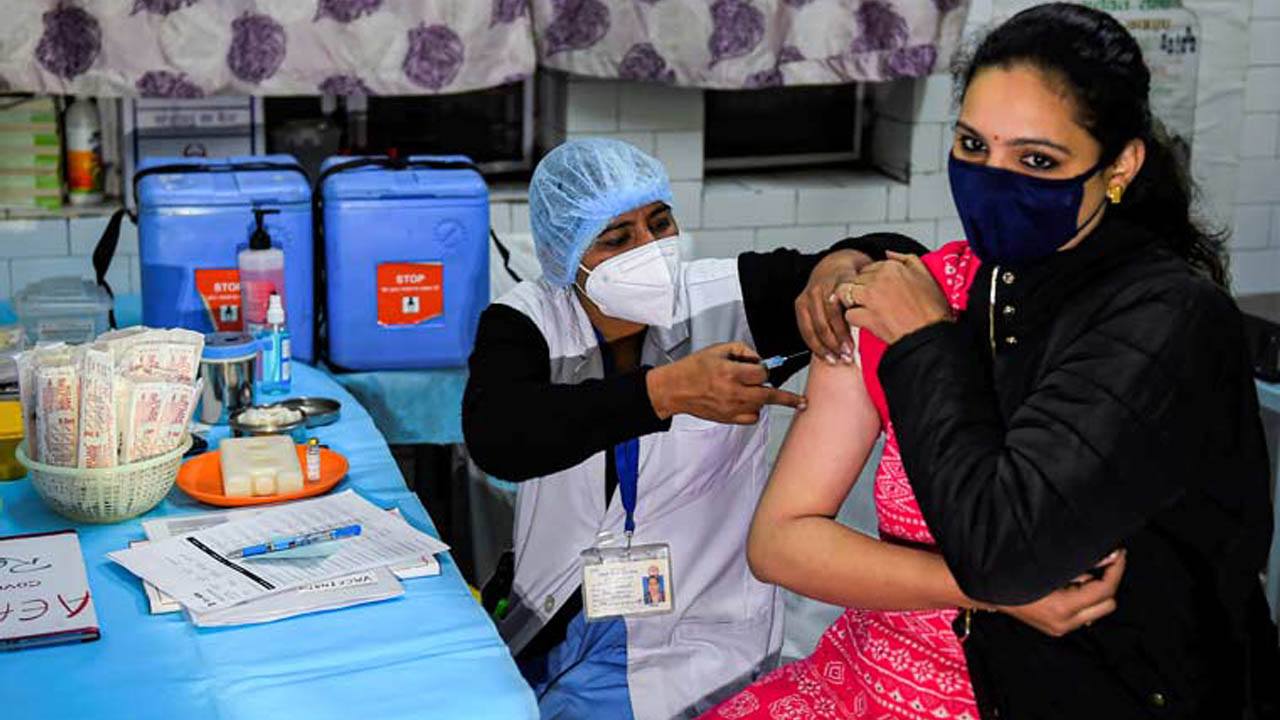In the second phase of India’s Covid-19 vaccination programme, which started on Monday, the general public will be eligible for the vaccine for the first time since the programme began on January 16. It’s for those over 60 and others over 45 who have co-morbidities. 25 lakh potential beneficiaries registered on the Co-win platform on the first day, and will be vaccinated in the coming days.
What distinguishes the second step from the first?
The vaccine form will not be revealed to the beneficiary at the time of the appointment, as it was in the first process. Using the same mobile number, a beneficiary will self-register themselves and three others. Slots will be available from 9 a.m. to 3 p.m., and appointments can be made for any time until 3 p.m. if space is available.
Second, the applicant can choose any state’s vaccination centre, date, and time. A voter registered in Haryana, for example, can get vaccinated in Kerala.
Third, before the time of vaccination, the applicant has the right to edit or erase all registration and appointment information. The record is locked and cannot be edited until an individual has been vaccinated.
What is the self-registration procedure?
The beneficiary must go to cowin.gov.in and enter a mobile number, after which they will obtain a one-time password. Following the validation of the OTP, the beneficiary must enter four details: the photo ID she intends to display at the time of vaccination; the photo identification number (for example, the Aadhaar number if the ID is Aadhaar); age and gender; and whether the beneficiary has any pre-existing co-morbidity.
What is the protocol for scheduling a meeting?
The beneficiary must click on ‘Schedule Appointment,’ which will take her to a page where she can ‘book an appointment for vaccination.’
She will then have to select the state, district, block, and pin code from a dropdown menu. Following that, the device will show a list of vaccination clinics.
Once the beneficiary has selected a vaccination centre from the list, the system will show the dates and number of slots available each day, as well as the option to check the slots for the following week.
What kind of identification documents are acceptable?
You can use your Aadhaar card/letter, your electoral photo identification card, your passport, your driver’s licence, your PAN card, your NPR smart card, or your pension document with a photograph. Those over the age of 45 who have comorbidities must also bring a co-morbidity certificate signed by a licenced physician.
Is it possible for a beneficiary to step in without first registering on Co-win?
Yeah, indeed. Each state will be allocated a certain number of mobilisation slots. A walk-in facility will be available at certain vaccination centres: Registration, consultation, verification, and vaccination will all take place on the same day on-site. There will be no need to pre-register beneficiaries online for this.
What is the protocol for administering the second dose?
Following the first dose, the beneficiary would be given an appointment for the second dose at the same place. If the recipient has relocated to another city, the appointment may be rescheduled at the city’s nearest vaccination centre.
This isn’t needed. The second dose will be scheduled at the same centre on Day 29, according to a guidance document issued to the states; however, the recipient will have the option of shifting the second dose slot to any day between the 29th and 42nd days. This choice would be available in two situations: when the first dose has already been given, and only in those centres where the vaccine type is the same as the first dose.
What details does a vaccine consumer give to the vaccine provider?
If the beneficiary has ever had a serious allergic reaction (anaphylaxis) to any medication, food, vaccine, or any of the Covid-19 vaccine’s ingredients, she should note it. Second, the recipient must state whether or not she has a fever. She must also reveal whether she has a bleeding condition or is taking a blood thinner. Fourth, she must reveal whether she is immunocompromised or taking an immune-suppressing drug.
Are people who take blood thinners exempt?
No, it’s not real. Vaccines should be issued with caution to people who have a history of bleeding or coagulation disorders, according to the Health Ministry. Dr. Balram Bhargava, Director General of the Indian Council of Medical Research, previously clarified that blood thinners are divided into two categories: anti-platelets, such as aspirin or clopidogrel, which are not harmful, and anticoagulants, such as heparin, which cause patients to bleed more easily. The concern is that local swelling at the injection site can occur. Anticoagulants should be discontinued two days before the vaccine.
Humbly Request To All Visitors!
If you found above both downloading link expired or broken then please must inform admin by fill this Contact Us! Form


